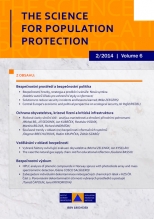THE CASE THE NATURAL GAS SUPPLY CHAIN: AID FOR EDUCATIONAL REFLECTION
DOI:
https://doi.org/10.71934/Keywords:
Gas supply, gas network, disruptions, risks, fragmentation, security, gas market, interoperabilityAbstract
The established EU-wide regulatory regime, with the scope to intensify competition in
all segments of the gas value chain and to ensure the Third Party Access to networks, is
considered by gas network operators to constitute a challenge to ensure the usual quality and
reliability of gas supply services. In the medium and long run this may hamper necessary
investments into new gas infrastructures required for maintaining a satisfactory level of
security of supply in the growing EU gas market and with increasing dependence on gas
imports. Thus, a prudent regulatory regime faces both: market efficiency and Security Of
Supply.
As contribution, the present paper will describe how the new rules of the European
Energy market are changing the structure of decision-making, with particular reference to the
management of plans to mitigate the consequences of major disruptions which could happen as
consequences of coordinated malicious attacks to Energy Critical Infrastructures. The effective
and efficient mitigation of major disruptions produces benefits reducing the risk of shortage of
Energy in the Citizens and Economic systems but, doing this, reduces also the interest to
perpetrate malicious attacks.
Specifically, the paper examines the consequence of the: 1) fragmentation of players ;
2) lack of accountability principally with regards to Security of Supply; 3) the plurality of
operators along the gas logistic chain ; and 4) the need for enhancing ‘consistent cooperation’
between the concerned players.
The paper invites the community of stakeholders to identify structures, tools and
actions necessary to prevent these risks. It draws attention to improving interoperability1
between the players enabling ‘consistent cooperation’ based on: a) a clear accountability of
each player; b) a more harmonized and timely updated information exchange; and c) decision
making processes based on consistent sets 2 of models simulating the complex interactions
along the gas supply chains
Downloads
Published
Issue
Section
License
Copyright (c) 2025 The Science For Population Protection

This work is licensed under a Creative Commons Attribution-NonCommercial-NoDerivatives 4.0 International License.
Published under license


